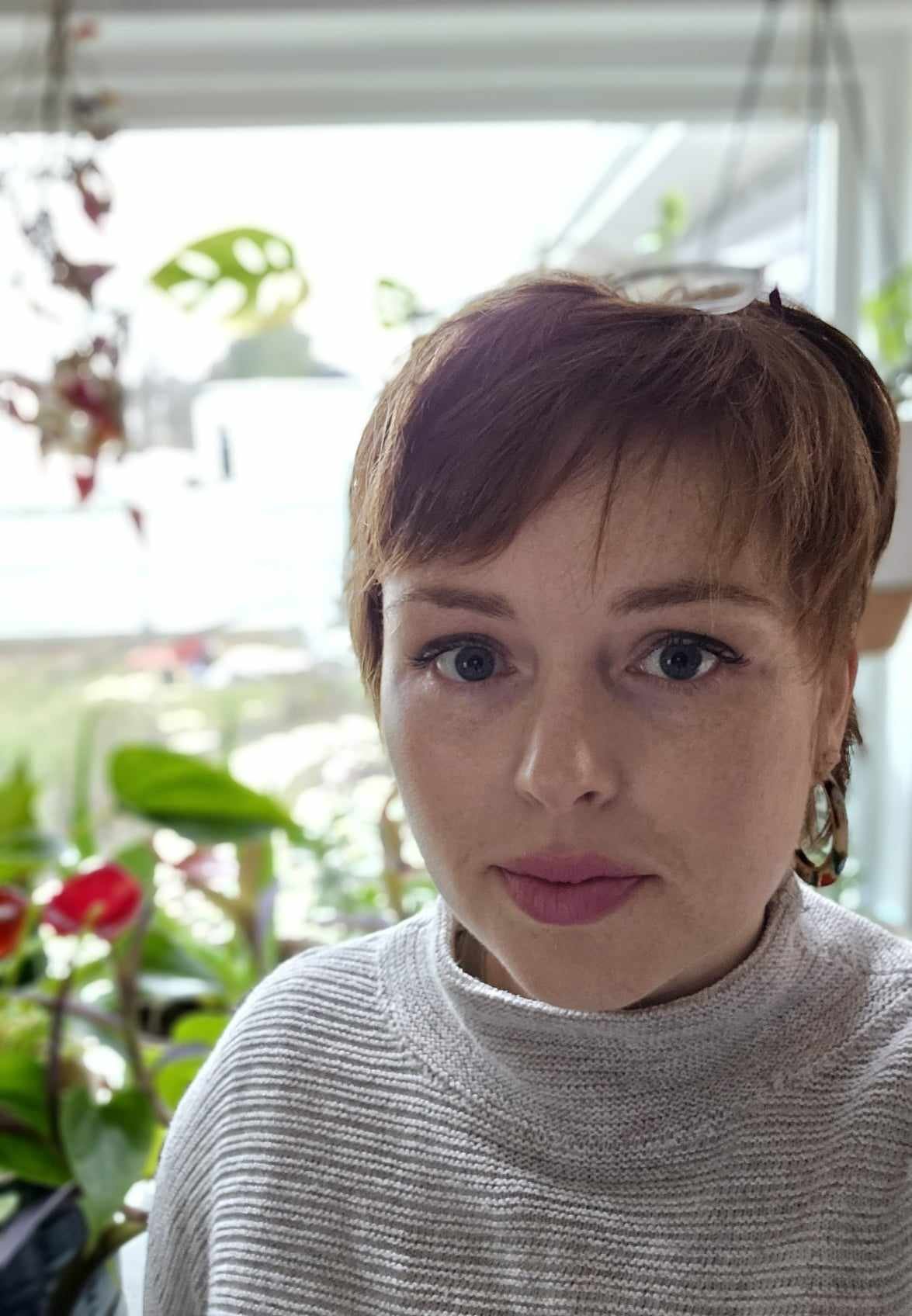A Few Words
Stacey Lounsberry
with…
TMR:
SL:
TMR:
SL:
TMR:
SL:
TMR:
SL:
What was the inspiration, or the seed, for this piece?
I live in the same small town I grew up in. Every day when I drive my boys home from school, I drive along a ridge that overlooks the same run-down trailer park which I used to happily play in as a child, though I no longer know any of the residents there; my friends have long grown and moved off—I hope to better things. One trailer sits close to an electric pole; strung up between the pole and steel wire angled into the ground is a make-shift hammock. On sunny days, I often see a teenage girl and toddler playing around the unused hammock; the teen fiddling with parts around the yard, the younger child in the grass. I do wonder about their lives, the hammock which represents freedom and relief tied to an ugly electric pole beneath a busy highway (I can only imagine the exhaust funneling down into their yard), in front of a collection of nearly unlivable trailers. So, I wrote about them to find out.
People always ask how you got into writing, but what keeps you writing?
Curiosity.
Writing is like playing an instrument in that it requires the full focus of the brain. When I’m writing, there’s no room for anything else, and isn’t that wonderful? At least, for a little while anyway. And when I’ve finished a piece—oh, that’s on a different level. More often, I don’t know where the story is going; I get hung on a word or a phrase or an image and then I just have to know more. So, I write about it to find out.
I have only recently returned to writing; after having children, I was unable to write for years. Not because of lack of time, but because I was so utterly full of feeling that I didn’t want to feel any more. Then I began to dabble in children’s literature, and I have found in it the most wonderful escape. Writing mostly children’s lit became a safety, and from there I expanded back out. My children love my stories! My husband loves my stories! (They’re biased? Of course not…)
That final line, "Now I'd never know", is so melancholic; we see Annabeth appeasing herself with that line in order to avoid accepting what she seems to believe, deep down: that the baby is Erin's. Do you think this comes from the influence of her mother? Or from a place of fear? Or, perhaps, a combination of the two.
I feel like ultimately the story is less about the truth of who is Bri’s mother and more about the weight of Annabeth’s conclusion (or lack thereof). She’s at an indecisive age, between girl and woman; in an indecisive place, between charity and superiority; and certainly, in an indecisive, Southern culture, which lay somewhere between the past and the future. She can look around her and see how privileged she is, yet there is something that Annabeth believes Erin has that she does not; and it’s something she simultaneously fears and wants: autonomy. Whether this sixteen-year-old girl living in not-great conditions has actual autonomy is questionable, but from fourteen-year-old Annabeth’s very shielded perspective, it’s the forbidden fruit for which her mouth waters.
And, lastly, if flash fiction were a fruit, which do you think it would be?
Strawberry – filled with hundreds of little seeds that turn into hundreds of other stories, er—strawberries.
You can read Stacey Lounsberry’s piece, The Bet, here.
The Bet appeared in The Mersey Review 2 (Spring 2024)
Stacey Lounsberry is a full-time mother and writer, and her work has appeared in Ariel Chart, The First Line, Inscape and others. Her poem received an honorable mention in the 2007 Sarabande Books Poetry Contest. She lives in Eastern Kentucky with her husband and two young sons.


